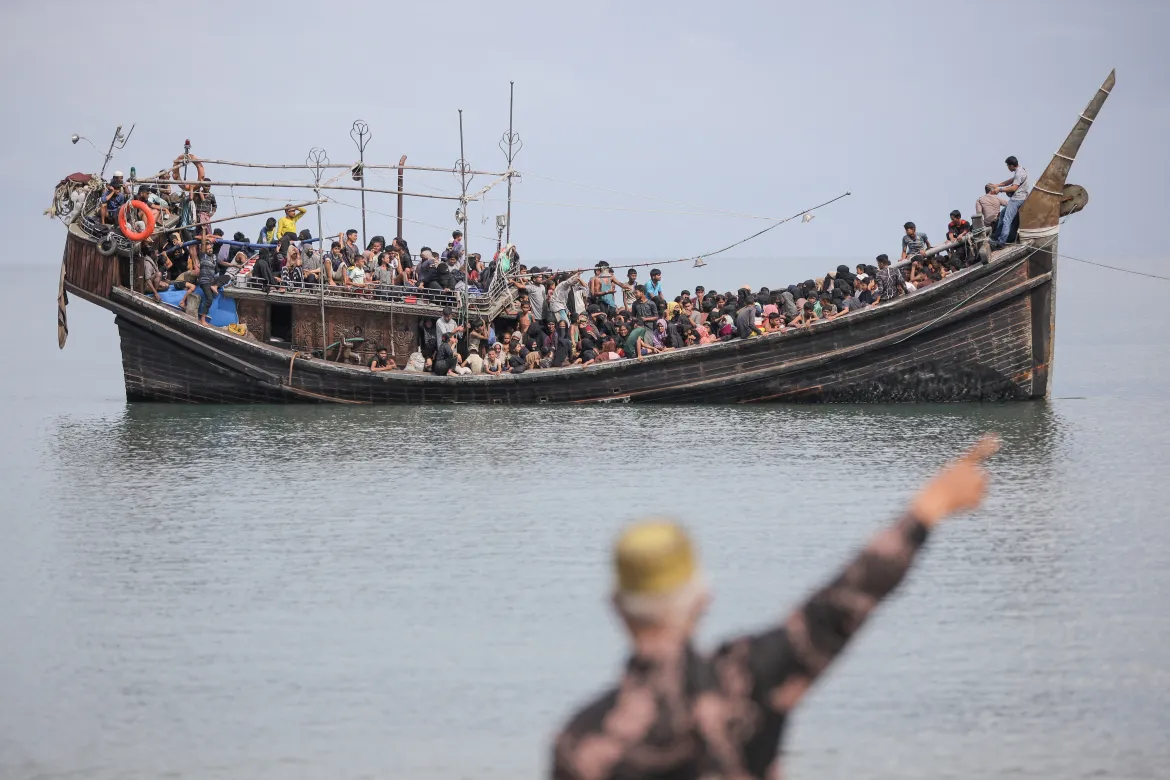More than 100 Rohingya refugees including women and children landed in Indonesia’s westernmost province on Saturday, officials said, but locals were threatening to push them back to sea.
The arrival comes after more than 1,000 Rohingya refugees landed in Aceh last month, the biggest wave of Rohingya refugee arrivals in Indonesia since 2015, according to the United Nations refugee agency (UNHCR).
The mostly Muslim Rohingya are heavily persecuted in Myanmar, and thousands risk their lives each year on long and expensive sea journeys, often in flimsy boats, to try to reach Malaysia or Indonesia.
“When I arrived, the Rohingya refugees were already on the beach,” Dofa Fadhli, the head of Ie Meulee village where the latest group of Rohingya landed, told AFP.
“The total of the refugees is 139 people. There were children, women, and adult men. We have not counted in detail. (We are) waiting for other related parties,” he said, adding the boat reached the shores of the village in Aceh Province around 0230 am local time (1930 GMT Friday).
More than half a dozen boats have arrived in Aceh since November 14, and monitors say more are on their way, despite some locals turning arriving boats back to sea and stepping up patrols on the coast.
Fadhli said the latest refugees would be pushed back to the sea if they were not relocated but would give them aid in the meantime.
“We, the residents of Ie Meulee, strongly reject the arrival of the Rohingya refugees,” he said.
“If within the time limit that we have given until this afternoon, there is no action, then we will return the Rohingya refugees back to their boat.”
UNHCR protection associate Faisal Rahman confirmed more than 100 refugees had landed in Sabang and said officials were on their way to the island.
“We will coordinate the situation with the local government,” he said.
Images and footage seen by AFP showed the refugees sitting in rows on a beach, while security forces and locals could be seen standing around the group.
More than 3,500 Rohingya are believed to have attempted the risky journey to Southeast Asian countries in 2022, according to UNHCR.
Nearly 350 Rohingya died or went missing last year while attempting hazardous sea crossings, the agency has estimated.




